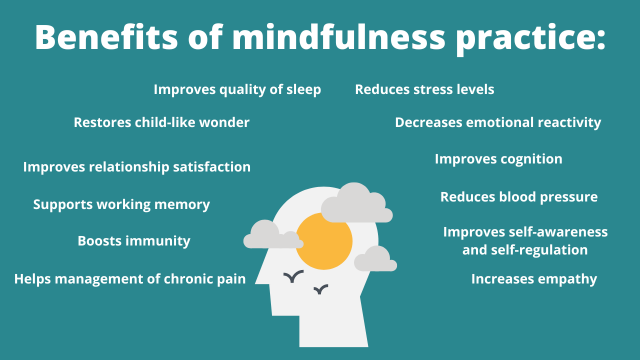In today’s fast-paced world, finding moments of stillness and tranquility can be challenging. We often find ourselves caught up in the demands of work, technology, and various responsibilities, leaving little time for self-reflection and self-care. This is where mindfulness comes to our rescue. Mindfulness is a powerful practice that can transform our lives, enabling us to live in the present moment and find inner peace amidst the chaos. In this blog post, we will explore the essence of mindfulness, its benefits, and practical tips to incorporate it into our daily lives.
Understanding Mindfulness:
At its core, mindfulness is the practice of deliberately paying attention to the present moment without judgment. It involves observing our thoughts, emotions, bodily sensations, and the world around us with curiosity and acceptance. By engaging in mindfulness, we shift our focus from dwelling on the past or worrying about the future to fully experiencing the here and now.
Benefits of Mindfulness:
- Reduced Stress: Mindfulness has been scientifically proven to reduce stress levels by interrupting the cycle of anxious thoughts and helping us respond to challenging situations with clarity and calmness. It allows us to break free from the grip of stress and find greater resilience in the face of adversity.
- Improved Mental Well-being: Regular mindfulness practice has been associated with increased emotional stability, enhanced self-awareness, and improved overall mental well-being. It helps us gain insight into our thoughts and emotions, enabling us to navigate through life’s ups and downs with greater clarity and equanimity.
- Enhanced Focus and Productivity: Mindfulness sharpens our ability to concentrate and stay focused on the task at hand. By training our minds to be fully present, we become more efficient, productive, and better equipped to handle complex tasks.
- Better Relationships: Mindfulness not only enhances our relationship with ourselves but also with others. By cultivating non-judgmental awareness, we develop empathy, compassion, and deep listening skills, enabling us to form deeper connections and communicate more effectively.
Incorporating Mindfulness into Daily Life:
- Start with Small Steps: Begin by dedicating a few minutes each day to mindfulness practice. Sit in a quiet place, focus on your breath, and observe your thoughts without judgment. As you become comfortable, gradually increase the duration of your practice.
- Mindful Eating: Pay attention to the flavors, textures, and sensations while eating. Slow down, savor each bite, and appreciate the nourishment that food provides.
- Mindful Movement: Engage in activities such as yoga, tai chi, or walking meditation, where you can bring awareness to the movement of your body. Notice the sensations, the rhythm of your breath, and the environment around you.
- Digital Detox: Take regular breaks from technology and engage in activities that promote mindfulness, such as reading, journaling, or spending time in nature. Disconnecting from digital distractions allows us to reconnect with ourselves and the present moment.
- Mindful Relationships: Practice active listening and empathetic communication in your interactions with others. Be fully present, giving your undivided attention and truly hearing what the other person is saying.
Mindfulness is a transformative practice that invites us to fully experience the beauty of life and reconnect with our true selves. By incorporating mindfulness into our daily lives, we can cultivate inner peace, reduce stress, and improve our overall well-being. Start small, be patient, and embrace the present moment—mindfulness has the power to awaken your senses and bring a profound sense of joy and contentment. So, take a deep breath, let go of worries, and embark on a journey of mindfulness that will enrich every aspect of your life.
